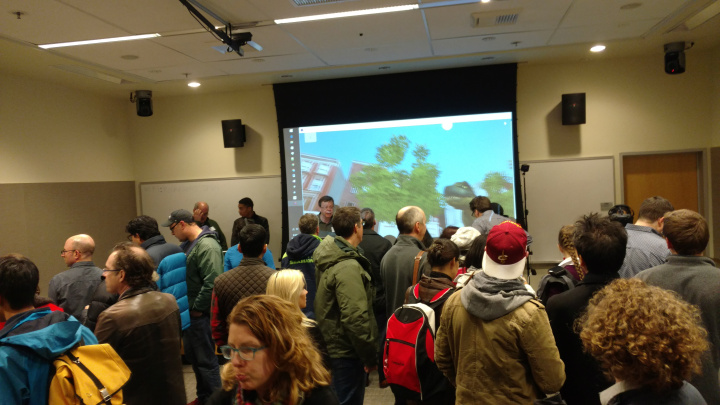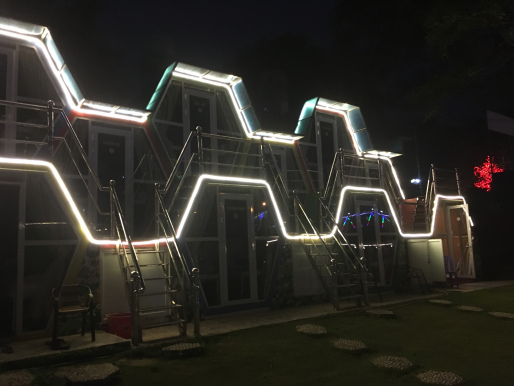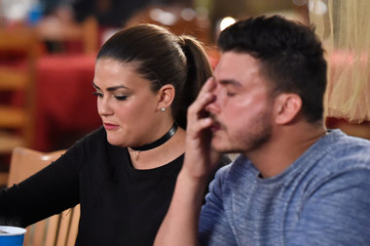This seems to be a week of bad news for Seattle’s VR/AR community, with two developments of Debbie Downer-level magnitude. One, Bellevue-based Envelop VR has closed. Signs didn’t seem good at Immerse a few months ago, when Envelop, a sponsor of the conference, conspicuously reserved an empty booth. I have little information about the company’s closure so don’t feel qualified to offer much comment. I do want to say, however, as someone who has been laid off three times, that I hope Envelop’s former employees find new opportunities soon.
The second bummer piece of news is that the City of Seattle rejected a proposal to convert warehouse space at Magnuson Park into a film production facility. A number of passionate local film/VR professionals have worked on this proposal for over two years, and I imagine this comes as a tremendously dispiriting development. I’m sure they feel like this:
I’ve been hearing about the Magnuson Park proposal for months from a number of people involved in local cinematic VR. My understanding was that it was to be a facility designed for immersive media production, with a public-facing element like a learning center. What’s curious to me about the Seattle Times article linked to above is that it makes no mention of VR. The Times characterizes the effort as solely a movie industry proposal, with an emphasis on providing film production jobs to the homeless.
I know too well how lousy it feels to get turned down by City Hall. I spent a good part of two years lobbying Mayor Ed Murray and City Council to fund a project related to my old literary community. At the time I compared the budget process to being blindfolded and sent stumbling down a hallway while getting repeatedly stabbed. Pats on the back and statements of support for the arts are in plenty supply, while actual taxpayer dollars are subject to fierce competition among a variety of interests, some of which have deeper pockets and are louder and better organized.
Which brings us to the non-downer portion of today’s post. This was also the week that a delegation of talented VR professionals journeyed to Olympia to introduce a number of state legislators to the medium, and stress Washington State’s leading role in this emerging industry. Amy Lillard (Washington Filmworks), Sandy Cioffi (fearless360º), Mischa Jakupcak (Mechanical Dreams), Elizabeth Scallon (CoMotion Labs), Karen Olson (Space Needle), and Julia Fryett (Pixvana) treated lawmakers to demos and spoke about the economic potential of immersive tech. One would be hard pressed to assemble a smarter team with which to navigate the byzantine legislative process.
In order for this industry to grow in Washington State, we’re going to need cooperation from Olympia. A sound political strategy can mean tax incentives for VR content production and more opportunities to collaborate with Vancouver‘s thriving film industry. It’s important to keep in mind, though, that politics and bleeding edge tech operate at significantly different speeds. For those of us used to watching ideas sketched on white boards turning into products and businesses within months, this can be aggravating in the extreme. The world of politics is good at slowing processes down to molasses speed. Politics favors caution while new technology favors boldness.
What’s required, I suppose, is persistence and the fortitude to last. I hope that the committed individuals who poured their hearts into the Magnuson proposal don’t take this setback as a repudiation of their efforts, but learn from it, figure out what didn’t work, brush themselves off, and try a different tack. And I hope that the VR industry’s efforts in Olympia are sustained and bring to the table many more voices. Lawmakers tend to pay attention more when their hearing rooms fill with people who are willing to speak up and work hard for their causes.
 One of the demo rooms last night at New Year, New VReality, Microsoft Building 99
One of the demo rooms last night at New Year, New VReality, Microsoft Building 99
Such a hearing room might resemble the scene last night at Microsoft’s Building 99 in Redmond for an event called “New Year, New VReality.” Over 300 members of the VR/AR community gathered on a week night to listen to a bunch of lawyers present their insights on such matters as raising seed funding and protecting intellectual property. The event was organized by Budi Mulyo of Sixr and the legal minds behind IME Law (full disclosure: I’m a client). Companies including MoCap Now, Chronos Global Academy, and newcomers Anatomy Next provided demos in a couple breakout rooms while the main event consisted of presentations and a panel including such industry leaders as Jerry Carleton (Immix Law Group) and Tom Doyle (Endeavor One). I found the event to be loaded with useful information.
In light of the bummer industry news, the gathering provided optimism for how VR/AR will evolve in 2017. I had multiple conversations with people about the warmly collegial tenor of the evening, and it was energizing to watch connections spark in real time. I left with a sense that we’re all in this together, and I imagined that such a collection of entrepreneurs, engineers, and artists will in time develop more and more political clout. We’ll see what’s possible when a community embraces the idea that it’s also a constituency.
Share this:




